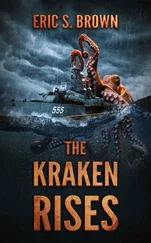Eric Brown - Kéthani
Здесь есть возможность читать онлайн «Eric Brown - Kéthani» весь текст электронной книги совершенно бесплатно (целиком полную версию без сокращений). В некоторых случаях можно слушать аудио, скачать через торрент в формате fb2 и присутствует краткое содержание. Город: Oxford, Год выпуска: 2009, ISBN: 2009, Издательство: Solaris, Жанр: Фантастика и фэнтези, на английском языке. Описание произведения, (предисловие) а так же отзывы посетителей доступны на портале библиотеки ЛибКат.
- Название:Kéthani
- Автор:
- Издательство:Solaris
- Жанр:
- Год:2009
- Город:Oxford
- ISBN:9781844167128
- Рейтинг книги:5 / 5. Голосов: 1
-
Избранное:Добавить в избранное
- Отзывы:
-
Ваша оценка:
- 100
- 1
- 2
- 3
- 4
- 5
Kéthani: краткое содержание, описание и аннотация
Предлагаем к чтению аннотацию, описание, краткое содержание или предисловие (зависит от того, что написал сам автор книги «Kéthani»). Если вы не нашли необходимую информацию о книге — напишите в комментариях, мы постараемся отыскать её.
Kéthani — читать онлайн бесплатно полную книгу (весь текст) целиком
Ниже представлен текст книги, разбитый по страницам. Система сохранения места последней прочитанной страницы, позволяет с удобством читать онлайн бесплатно книгу «Kéthani», без необходимости каждый раз заново искать на чём Вы остановились. Поставьте закладку, и сможете в любой момент перейти на страницу, на которой закончили чтение.
Интервал:
Закладка:
The cold had awoken her by the time I pushed through the front door. I carried her to her room, where she changed into her pyjamas. Five minutes later she was snuggling into my lap before the fire and we were watching a DVD of a French mime act, which apparently was the latest craze in kids’ entertainment.
She was asleep ten minutes later, and I turned down the sound and switched over to a news programme. Half awake myself, and cradling my daughter in my arms, I allowed a succession of images to wash over me and considered how lucky I was.
So I might have married the last religious zealot in West Yorkshire, but from that match made in Hell had issued Lucy Katia Chester. And to think that, back in my twenties, I’d vowed never to have children. I sometimes shudder to think of the joy I would have missed had I remained faithful to my bachelor principles.
A newscaster was reporting anti-Kéthani riots in Islamabad, but by then I was fading fast.
I took Lucy to Bolton Abbey the following day. I bundled her up in her chunky pink parka, bobble hat, and mittens against the biting cold, and we walked through the trees along the riverbank. Down below, the river was frozen for the first time in living memory, its usually quicksilver torrent caused in shattered slabs of grey and silver. Later we lobbed snowballs at each other among the stark ruins of the Abbey. It was quiet—no one else had dared to venture out, with the thermometer fifteen below zero—and to hear her laughter echoing in the stillness was a delight. I had quite forgotten to ring Marianne last night, to enquire about Lucy’s illness, but she seemed fine today so I decided not to bother.
We had lunch in the Devonshire Arms across the road from the Abbey, and in the afternoon visited Marsworld, a couple of miles north of Skipton. We wandered around the replica rockets that had carried the scientific team to the red planet a couple of years ago, then visited mock-ups of the dozen domes where the explorers were living right at that moment. I had worried that Lucy might find it boring, but she turned out to be fascinated; she’d had lessons about the mission at school, and actually knew more about it than I did.
We drove home through the narrow lanes at four, with dusk rapidly falling. I proceeded with a caution I would not have shown had I been alone: I carried a precious cargo on the back seat… The only time I was truly content, and could rest easy, was when Lucy was with me. At other times, I envisaged, perhaps unfairly, the unthinking neglect with which Marianne might treat her.
“Do you know what would be nice, Daddy?” Lucy said now.
“What?” I asked, glancing at her in the rear-view.
“I would really like it if you and Mummy would live together again.”
She had said this before, and always I had experienced a hopeless despair. I would have done anything to secure my daughter’s happiness, but this was one thing that I could not contemplate.
“Lucy, we can’t do that. We have our separate lives now.”
“Don’t you love Mummy any more?”
“Not in the same way that I once did,” I said.
“But a little bit?” she went on.
I nodded. “A little bit,” I said.
She was quiet for a time, and then said, “Why did you move away, Daddy? Was it because of me?”
I slowed and looked at her in the mirror. “Of course not. What made you think—?”
“Mummy said that you stopped loving her because you couldn’t agree about me.”
I gripped the wheel, anger welling. I might have hated the bitch, but I had kept that animosity to myself. Never once had I attempted to turn Lucy against her mother.
“That’s not true, Lucy. We disagreed about a lot of things. What you’ve got to remember is that we both love you more than anything else, okay?”
We underestimate children’s capacity for not being fobbed off with platitudes. Lucy said, “But the biggest thing you disagreed about was me, wasn’t it? You wanted me to be implanted, and Mummy didn’t.”
I sighed. “That was one of the things.”
“Mummy says that God doesn’t want people to be implanted. If we’re implanted, then we don’t go to heaven. She says that the aliens are evil—she says that they’re in the same football league as the Devil.”
I smiled to myself. I just wanted to take Lucy in my arms and hug her to me. I concentrated on that, rather than the anger I felt towards Marianne.
“That isn’t true,” I said. “God made everyone, even the Kéthani. If you’re implanted, then you don’t die. Eventually you can visit the stars, which I suppose is a kind of heaven.”
She nodded, thinking about this. “But if I die, then I’ll go to a different heaven?” she asked at last.
If you die without the implant, I thought, you will remain dead for ever and ever, amen, and no Christian sky-god will effect your resurrection.
“That’s what your mum thinks,” I said.
She was relentless with her dogged eight-year-old logic. “But what do you think, Daddy?”
“I think that in ten years, when you’re eighteen, you can make up your own mind. If you want, you can be implanted then.” Ten years, I thought: it seemed an eternity.
“Hey,” I said, “we’re almost home. What do you want for dinner? Will you help me make it?”
“Spaghetti!” she cried, and for the rest of the journey lectured me on the proper way to make Bolognese sauce.
That evening, after we’d prepared spaghetti together and eaten it messily in front of the TV, Lucy slept next to me while I tried to concentrate on a documentary. It was about a non-implanted serial killer in the US, who preyed on implanted victims and claimed, technically, that he wasn’t committing murder.
I lost interest and found myself thinking about Marianne.
I had met her ten years ago, when I was thirty. She had been twenty-six, and I suspected that I’d been her very first boyfriend. Her Catholicism had intrigued me at the time, her moral and ethical codes setting her apart in my mind from the hedonism I saw all around. The Kéthani had arrived the year before, and their gift of the implants had changed society for ever. In the early days, many people adopted a devil-may-care attitude towards life—they were implanted, they could not die, so why not live for the day? Others opposed the changes.
I was implanted within a year of the Kéthani’s arrival. I was not religious, and had always feared extinction. It had seemed the natural thing to do to accept the gift of immortality, especially after the first returnees arrived back on Earth with the stories of their resurrection.
Not long after my implantation, I trained to become a ferryman—and but for this I might never have met Marianne. Her mother, an atheist and implanted, had died unexpectedly of a cerebral haemorrhage, and I had collected the body.
I had been immediately attracted to Marianne’s physicality, and found her world view—during our many discussions in the weeks that followed our first date—intriguing, if absurd.
She thought the Kéthani evil, the implantation process an abomination in the eyes of the Lord, and looked forward to the day when she would die and join the virtuous in heaven.
She was appalled by my blithe acceptance of what I took to be our alien saviours.
We were married a year after our first meeting.
I was in love, whatever I thought that meant at the time. I loved her so much that I wanted to save her. It was only a matter of time, I thought, before she came to see that my acceptance of the Kéthani was sane and sensible.
She probably thought the reverse: given time, her arguments would bring about my religious salvation.
We had never spoken about what we might do if we had children. She was a successful accountant for a firm in Leeds, and told me that she did not want children. She claimed that Lucy was a mistake, but I’d often wondered since whether she had intended conceiving a child, and whether she had consciously planned what followed.
Читать дальшеИнтервал:
Закладка:
Похожие книги на «Kéthani»
Представляем Вашему вниманию похожие книги на «Kéthani» списком для выбора. Мы отобрали схожую по названию и смыслу литературу в надежде предоставить читателям больше вариантов отыскать новые, интересные, ещё непрочитанные произведения.
Обсуждение, отзывы о книге «Kéthani» и просто собственные мнения читателей. Оставьте ваши комментарии, напишите, что Вы думаете о произведении, его смысле или главных героях. Укажите что конкретно понравилось, а что нет, и почему Вы так считаете.












